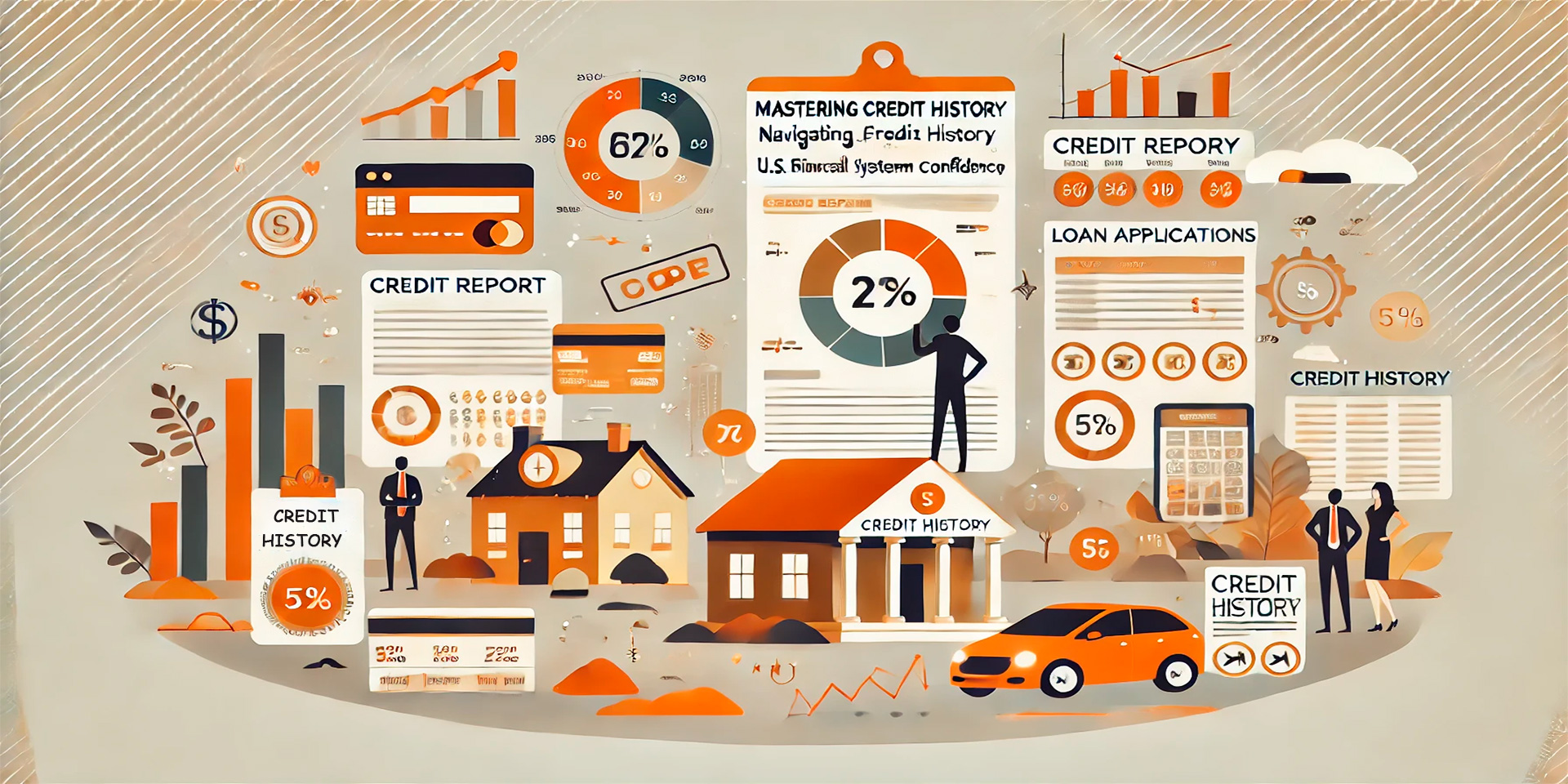Credit history is a vital element in determining the loan terms you can secure. It serves as a comprehensive record of your financial behavior, reflecting how you’ve managed credit over time. Lenders rely on this history to assess your creditworthiness, which directly influences the interest rates, loan amounts, and repayment conditions you’re offered. A robust credit history opens the door to favorable loan terms, while a weaker one may limit your options and increase borrowing costs.
To unlock the best loan terms, it’s essential to understand the intricacies of credit history. This guide will help you navigate these complexities, explaining how credit history is compiled, how it affects your loan conditions, and what steps you can take to improve it.
What Is Credit History?
Credit history is a detailed account of your debt management over time. It includes records of your credit accounts, payment behavior, outstanding balances, and any instances of defaults or collections. This information is compiled into a credit report by credit bureaus, including Equifax, Experian, and TransUnion, and is used by lenders to decide whether to approve your loan application and under what conditions.
Your credit report is essentially a reflection of your financial habits, showing whether you’ve consistently paid your bills on time, the amount of debt you currently carry, and how often you’ve applied for new credit. This history is summarized in a credit score, a three-digit number that provides a quick reference for lenders to gauge your creditworthiness.
How Credit History Influences Loan Terms
The quality of your credit history significantly impacts the loan terms you’re offered. Lenders view your credit history as a predictive tool, helping them estimate how likely you are to repay a loan. A solid credit history signals reliability, often resulting in lower interest rates, higher loan amounts, and more flexible repayment options.
Interest rates are among the most directly affected aspects of a loan by your credit history. A strong credit score, which reflects a positive credit history, typically qualifies you for lower interest rates, saving you money over the life of the loan. On the other hand, a credit history marked by late payments or defaults may lead to higher interest rates as lenders compensate for perceived risk.
The amount you’re able to borrow is also influenced by your credit history. Lenders are more willing to approve larger loans for those with strong credit histories, as these individuals present less risk. If your credit history is less favorable, you might be approved for a smaller loan, or you could be required to provide additional collateral or a co-signer.
Repayment terms, including the length of the loan and the flexibility of payment schedules, also tend to be more favorable for individuals with a strong credit history. Lenders may offer longer repayment periods or more lenient terms, making loan management more comfortable.

Improving Your Credit History for Better Loan Terms
If your credit history isn’t as strong as you’d like, there are ways to improve it, which in turn can help you secure better loan terms in the future. The most crucial step is to ensure that you’re paying all your bills on time. Consistently making on-time payments is the most effective way to build a positive credit history and improve your credit score.
Reducing your credit card balances is another vital strategy. Keeping your credit utilization ratio—how much credit you’re using compared to your total credit limit—low signals to lenders that you’re managing your credit well, which can positively impact your credit score.
It’s also wise to avoid opening multiple new credit accounts in a short period. Each new application can result in a hard inquiry on your credit report, temporarily lowering your credit score. Instead, focus on managing your existing accounts responsibly and allowing your credit history to build over time.
If your credit report contains negative marks, such as late payments or defaults, addressing these issues can help rebuild your credit. Paying off past-due accounts or setting up payment plans with creditors can begin the process of restoring your creditworthiness. Regularly reviewing your credit report for errors and disputing any inaccuracies is also a critical step in improving your credit history.
Using Credit History to Your Advantage
A strong credit history is a powerful financial asset, giving you leverage to secure the best possible loan terms. When you have a robust credit history, you gain more negotiating power with lenders, enabling you to shop around for the best interest rates and loan conditions with confidence.
A solid credit history also allows you to take advantage of special loan products, such as zero-interest financing or lower down payment options, which may not be available to those with weaker credit profiles. By maintaining a strong credit history, you position yourself to capitalize on these opportunities, ultimately saving money and enhancing your financial security.
Conclusion
Understanding and managing your credit history is crucial to unlocking better loan terms. By recognizing the factors that influence your credit history and taking proactive steps to improve it, you can secure lower interest rates, higher loan amounts, and more favorable repayment conditions. A strong credit history not only enhances your ability to borrow but also empowers you to make the most of financial opportunities as they arise. As you navigate the complexities of credit and loans, remember that your credit history is a powerful tool in achieving your financial goals and securing a brighter future.



